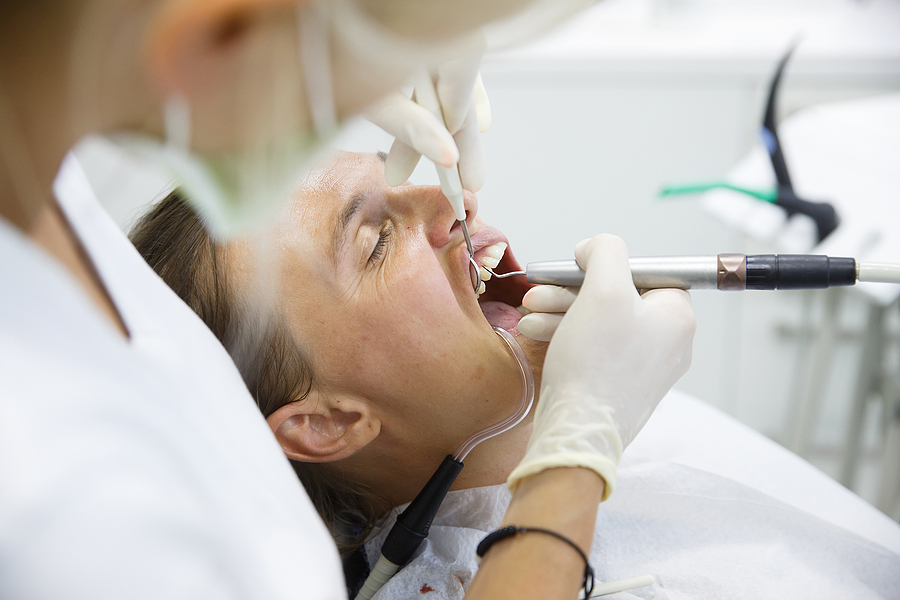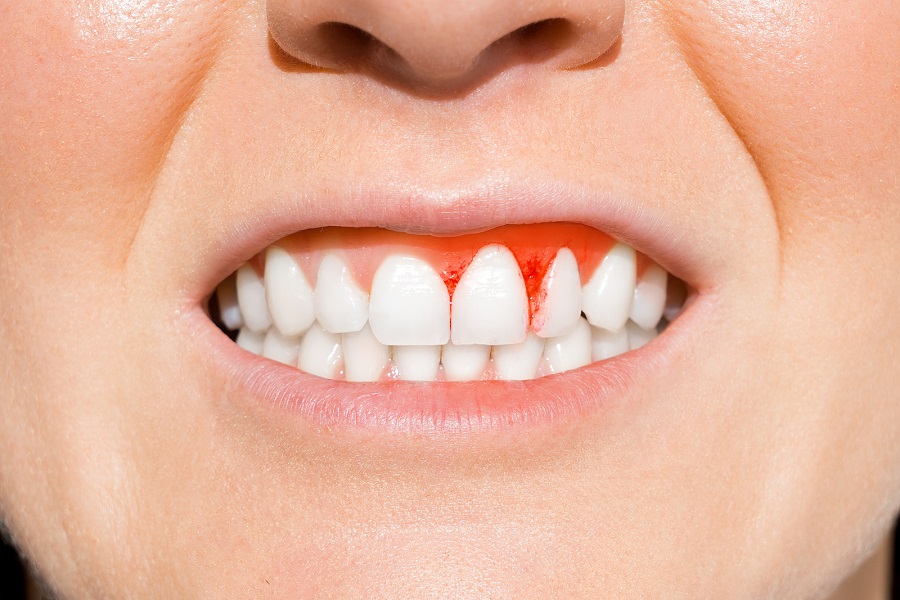Warning Signs of Gum Disease: When to See a Periodontist
Posted by Complete Dental Health LLC on Dec 3 2024, 01:24 AM

Gum disease is more common than you might think, yet many people don’t realize they have it until it’s too late. This sneaky condition starts small but can escalate quickly if ignored. Your gums play a crucial role in your oral health, and when they suffer, so does the rest of your mouth.
From bad breath to bleeding gums, spotting gum disease early can save you from more severe complications down the line. Understanding what to look out for empowers you to take action and seek help when necessary. So, let’s dive into the warning signs of gum disease and explore when it's time to consult a periodontist in Albany, OR. Your smile deserves the best care possible!
Common Symptoms of Gum Disease
Gum disease often creeps up silently, but several symptoms can signal its presence.
- One of the first signs is persistent bad breath that doesn’t seem to go away with brushing or mouthwash.
- You might notice your gums becoming red, swollen, or tender to the touch. This inflammation is a clear indicator that something isn't right.
- Another common symptom is bleeding while brushing or flossing. If you find blood in your sink after dental care, it's time to pay attention.
- Additionally, receding gums can be alarming as they expose more of your tooth’s surface and may lead to sensitivity.
- Loose teeth are a worrying sign that gum disease has progressed significantly. Each of these indicators should prompt a visit to a professional for an accurate diagnosis and appropriate action.
Risk Factors for Developing Gum Disease
Gum disease often creeps in unnoticed, but several risk factors can increase your vulnerability.
- Age is one such factor; as you grow older, the likelihood of developing gum issues rises significantly.
- Smoking or using tobacco products also plays a crucial role. Not only does it impair blood flow to the gums, but it weakens your immune response against infections.
- Certain medical conditions can elevate risks too. Diabetes is a prime example; individuals with this condition are more susceptible to gum problems due to fluctuating blood sugar levels.
- Hormonal changes in women, especially during pregnancy or menopause, can make gums more sensitive and prone to inflammation.
- Additionally, poor nutrition lacking essential vitamins may compromise oral health. Regular dental check-ups become vital for those facing these challenges in order to maintain gum health effectively.
When to See a Periodontist
Recognizing when to see a periodontist is crucial for your oral health. If you notice persistent bad breath or a sour taste in your mouth, it may signal gum issues that need professional attention.
Another red flag is bleeding gums during brushing or flossing. This symptom shouldn’t be ignored, as it can indicate the early stages of gum disease. Swollen or receding gums also warrant a visit; they suggest inflammation and potential deterioration of gum tissue.
If teeth start feeling loose or shifting positions, immediate consultation with a periodontist is essential. These could be signs of advanced periodontal disease requiring specialized treatment.
If you have any chronic health conditions like diabetes, it's wise to schedule regular check-ups with a specialist to monitor your gum health closely. Taking action promptly can save you from more extensive treatments later on.
Treatment Options for Gum Disease
Treatment for gum disease varies depending on its severity. For mild cases, professional dental cleanings can effectively remove plaque and tartar. Regular visits to your dentist play a crucial role in maintaining healthy gums.
As the condition progresses, more intensive options may be necessary. Scaling and root planing is a deep cleaning procedure that targets below the gum line. This treatment helps eliminate bacteria from infected pockets.
In advanced stages, surgical interventions might be required. Flap surgery allows the periodontist to access deeper areas of infection by lifting back the gums. Bone grafts can also restore lost tissue and support overall oral health.
For those seeking non-surgical alternatives, antimicrobial treatments are available as well. These include topical antibiotics or mouth rinses designed to combat infections effectively.
Regardless of the method chosen, early intervention remains key in reversing damage caused by gum disease. Contact us to learn more.
Prevention Tips for Maintaining Healthy Gums
Maintaining healthy gums is essential for your overall oral health.
- Start with a solid dental care routine that includes brushing twice daily and flossing at least once. This simple habit can significantly reduce plaque buildup.
- Regular dental check-ups are crucial. A hygienist can spot early signs of gum disease before they escalate, ensuring you stay on track.
- Consider your diet as well. Incorporate plenty of fruits and vegetables, which are high in vitamins and minerals that are beneficial for gum health. Limit sugary snacks that can lead to decay.
- Don’t forget about hydration. Drinking water helps rinse away food particles and bacteria that contribute to gum problems.
- Steer clear of tobacco products; they weaken your gum tissue and make it harder to heal if issues arise. By adopting these practices, you’ll support not just your gums but also your entire smile!
Conclusion
Gum disease is a serious condition that can lead to significant health issues if left untreated. Recognizing the warning signs early can make all the difference in maintaining your oral health. If you experience symptoms such as swollen gums, persistent bad breath, or bleeding while brushing, it’s essential to take action.
Understanding risk factors—such as smoking, poor dental hygiene, and certain medical conditions—can help you be proactive about your gum health. Regular visits to a periodontist are vital for identifying potential problems before they escalate.
There are effective treatment options available through periodontal therapy in Albany, OR. From deep cleanings to more advanced surgical procedures, addressing gum disease promptly offers the best chance for recovery.
Maintaining healthy gums requires consistent care at home and regular professional check-ups. Adopt good oral hygiene habits and stay informed about how lifestyle choices affect your gum health.
Your smile deserves attention; don’t ignore the signs of gum disease! Seek help when needed and prioritize your dental well-being today.
To schedule an appointment with us at Complete Dental Health LLC, located at 1123 Hill Street SE, Suite A, Albany, OR 97322. For bookings and consultations, call (541) 928-6622. Please visit our official website today to learn more about the various services we provide.
Share On

Gum Health Basics - Everything You Need To Know
Gum disease is more common than you might think, yet many people don’t realize they have it until …

The Importance of Dental Cleanings
Gum disease is more common than you might think, yet many people don’t realize they have it until …

How Can I Permanently Get Rid of Bad Breath?
Gum disease is more common than you might think, yet many people don’t realize they have it until …